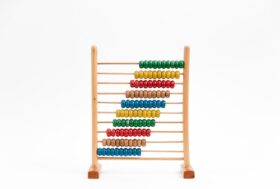It is with great pleasure that I write to you as you start either your NQT year, your studies or your career in teaching. I loved my job as a teacher! I don’t say that lightly. I think back to my years in the classroom and they rank as some of the most rewarding times of my career. I can’t remember what exams were passed but I do remember the faces and names of the children, young people, staff and families who shaped me as a person and as a teacher. I’d like to share an experience with you; it sums up exactly why I went into teaching in the first place – to make a difference to children’s lives. I received an email from the mother of a boy who was in one of my early Year 2 classes. I’ll call him Mike.
My son Mike was one of your students about 15 years ago. At the time he really hated school but you were so lovely and patient with him. You tapped into what he liked doing which at the time was constructing models. Mike has just graduated with a first class degree in
Join us or sign in now to view the rest of this page
You're viewing this site as a guest, which only allows you to view a limited amount of content.
To view this page and get access to all our resources, join the Chartered College of Teaching (it's free for trainee teachers and half price for ECTs) or log in if you're already a member.










